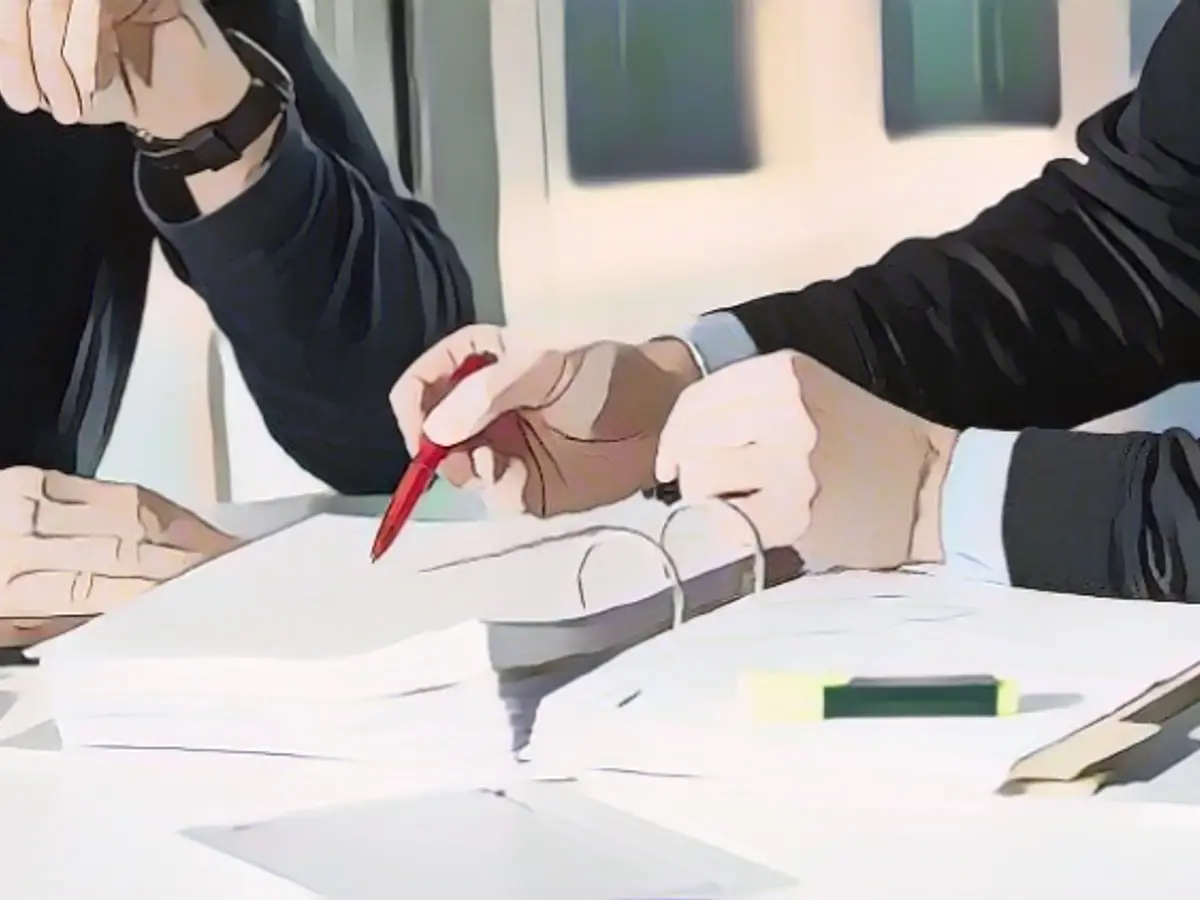Drowning in Debt? Here's How to Swim Again
Struggling with unwieldy debts? Don't despair! With a bit of self-reflection and proactive action, it's possible to rise above debt troubles, even when the situation seems overwhelming.
Whether it's a post-purchase installment plan, a property mortgage, or a loan for that new car, many people deal with debt. But what turns balancing the books into a challenge is when payments drown under the weight of arrears. Welcome to the territory of over-indebtedness.
"It's a diverse set of factors that drive people into this situation," says Kerstin Föller, an advisor at Hamburg's Consumer Advice Center. Common triggers include unexpected circumstances like job loss, health issues, or separation—events that can disrupt income levels and send a finacial spiral into motion.
According to the Institut für Finanzdienstleistungen (iff)'s 2023 over-indebtedness report, unemployment was the reason cited in around 20% of customer visits. Illness (around 13%) and separation/divorce (just under 10%) make up almost half of the cases. As Föller puts it, "Regrettably, many people find themselves in financial straits through circumstances beyond their control."
Use Debt Consultation Hours to Your Advantage
Although, as Föller points out, sinking into debt rarely happens overnight, there are warning signs to watch out for. Keeping an eye on your account's overdraft facility and paying bills late or to overdue can be red flags.
When it feels like debt mountains are starting to pile up, prompt action is crucial. "There's nothing to be gained by ignoring bills," says Sally Peters, iff's managing director. "Start by attending open consultation hours or calls provided by debt counseling centers. They can provide valuable guidance and suggest ways of self-management."
Evaluate Your Financial Situation
To regain control over your debt, first, gain a clear understanding of your financial situation. Create an inventory of your debts, interest rates, and deadlines. Then, write down your income and ongoing expenses. Items like rent, food, and utilities must be prioritized, while discretionary expenses can be adjusted or eliminated to stretch your income.
Reduce Expenses and Debt Load
Now it's time to review your spending habits to find ways to allocate funds towards debt repayment. Utilize digital tools or apps to track and categorize expenses, allowing you to pinpoint potential savings. Apps like Mint or YNAB can help you stay on top of your finances.
If you've identified areas where saving is possible, begin making adjustments and allocate that savings towards debt reduction. Also, consider paying off high-interest debts first, as they can accumulate swiftly and reduce your overall financial burden.
Append Income
In order to increase your income and pay off your debts more swiftly, explore options like taking on a part-time job or selling unused items online. Another approach is to sell items from a decluttered home—these funds can provide an additional income boost.
In addition, communicating with creditors like landlords about your situation will aid in finding workable solutions, such as agreeing on a payment plan.
Leverage Professional Assistance
If devising a repayment strategy proves challenging, seeking professional help is advisable. Debt counseling services can conduct a thorough evaluation of your situation and offer tailored advice on debt management. Services like National Debt Relief or Freedom Debt Relief specialize in negotiating with creditors to reduce debt amounts.
Making Good on Late Payments
Although seeking professional help can be empowering, addressing the issue at hand is crucial as well. Make a list of overdue payments and prioritize them, paying the most urgent ones first, such as late electricity or gas bills. Late payments can lead to severe consequences, including service disruptions or a negative impact on your credit score.
In conclusion, overcoming over-indebtedness starts with gaining awareness and taking control of your finances. Although some factors can be beyond your control, taking proactive steps to manage your finances and seek professional help when necessary will equip you to navigate choppy waters.








